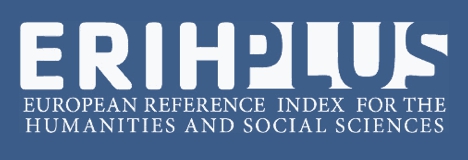GEOGRAPHICAL EDUCATION IN AN INTERDISCIPLINARY PERSPECTIVE: LITERATURE AND GEOGRAPHY
Abstract
This paper aims to discuss issues that involve classroom practices in an interdisciplinary perspective. This part from the literary work "The Continent I" written by Erico Verissimo alongside geographical concepts of space, territory, place and territorial identity. It intends to consider the articulation between Literature and Geography as contribution to the construction of knowledge and to the formation of students. Regarding Geography, it is remarkable that this practice contributes to geographic education since it allows the concepts to be developed in a non-fragmented way. Regarding Literature, the contribution is through the relation between fiction and the world of life. Concluding, it is understood that both disciplines worked together allow the student to establish relationships, reflections and understandings about the world they live in.
References
CALLAI, H. C.; ZENI, B. S. Importância do lugar: construindo cidadania na fábula perversa do globalitarismo de Milton Santos. Teoria & Sociedade, Belo Horizonte, 2011.
CANDIDO, A. O direito à literatura. In: CANDIDO, A. Vários escritos. 5. ed. Rio de Janeiro: Ouro sobre azul, 2011.
COLLING, Ana Maria. Tempos diferentes, discursos iguais. Mato Grosso do Sul.: Ufgd, 2014.
CMPAGNON, A. Literatura para quê? Trad. Laura Taddei Bandini. Belo Horizonte: Ed. UFMG, 2009.
GIDDENS, A. As consequências da modernidade. Trad. Raul Fiker. São Paulo: Ed. UNESP, 1991.
HAESBAERT, R. Territórios alternativos. São Paulo: Contexto, 2013.
__________. O mito da desterritorialização: do “fim dos territórios” à multiterritorialidade. 4. ed. Rio de Janeiro: Bertrand Brasil, 2009.
__________. Identidades territoriais. In: ROSENDAHL, Z.; CORRÊA, R. L. (org.). Manifestações da cultura no espaço. Rio de Janeiro: Eduerj, 1999.
HARVEY, D. La geografia como oportunidade política de resistência y construcción de alternativas. Revista de Geografia Espacios, v. 2, n. 4, p. 9-26, 2012.
HERMANN, N. Hermenêutica e educação. Rio de Janeiro: DP&A, 2002.
MARSHALL, T. M. Cidadania, classe social e status. Rio de Janeiro: Zahar Editores, 1967.
PADILHA. Paulo Roberto. Projeto político-pedagógico, Revista Pátio, Ano VII Nº 25 - - Fevereiro 2003 - Abril 2003. Disponível em: http://www.paulofreire.org/Biblioteca/t_pad3.html. Acesso em 14 mar. 2018.
QUEIROZ, A. I. A paisagem de terras do Demo. Lisboa: Esfera do Caos, 2009. (Coleção Gulbenkian Ambiente).
SANTOS, M. A natureza do espaço: técnica e tempo, razão e emoção. 4. ed. São Paulo: Ed. Universidade de São Paulo, 2006.
__________. O retorno do território. In: OSAL – Observatório Social de América Latina, ano 6, n. 16, jun. 2005. Disponível em:
__________. Metamorfoses do espaço habitado: fundamentos teórico e metodológico da geografia. São Paulo: Hucitec, 1988.
__________. As cidadanias mutiladas. In: O preconceito (vários autores). São Paulo: Imprensa Oficial do Estado, 1996/1997.
STEIN, E. Crítica da ideologia e racionalidade. Porto Alegre: Movimento, 1986.
SUERTEGARAY, D. M. A.; ROSSATO, M. S. Feições do Sul do Brasil. In: SUERTEGARAY, D. M. A.; ROSSATO, M. S. (org.). Brasil feições ilustradas. Porto Alegre: Imprensa Livre e Compasso, 2014.
VERISSIMO, E. O Tempo e o Vento: O Continente I. São Paulo: Globo, 2005.

This work is licensed under a Creative Commons Attribution-NonCommercial 4.0 International License.
Policy Proposal for Free Access Journals
Authors who publish in this journal agree to the following terms:
a. Authors retain the copyright and grant the journal the right of first publication, with the work simultaneously licensed under the Creative Commons Attribution License which allows the sharing of the work with acknowledgment of the authorship of the work and initial publication in this journal.
b. Authors are authorized to take additional contracts separately, for non-exclusive distribution of the version of the work published in this journal (eg publish in institutional repository or as a book chapter), with acknowledgment of authorship and initial publication in this journal.
c. Authors are allowed and encouraged to publish and distribute their work online (eg in institutional repositories or on their personal page) at any point before or during the editorial process, as this can generate productive changes, as well as increase the impact and The citation of published work (See The Effect of Free Access).





















